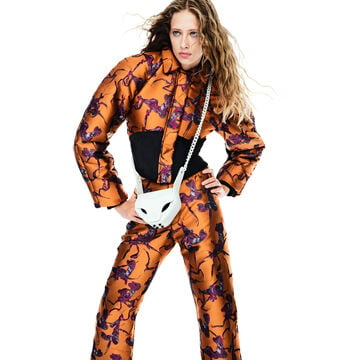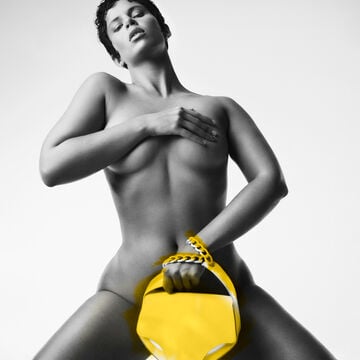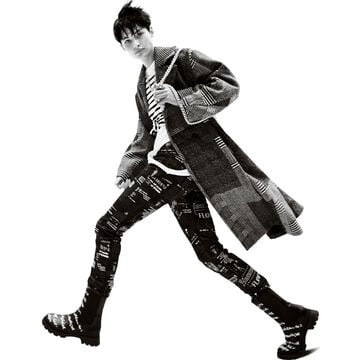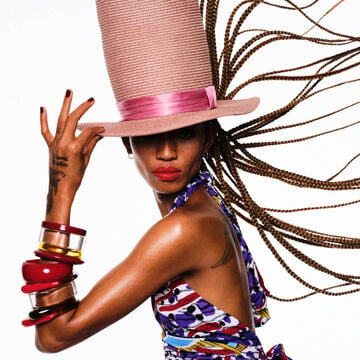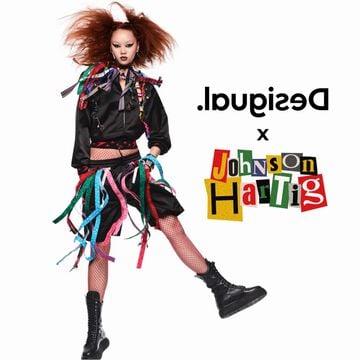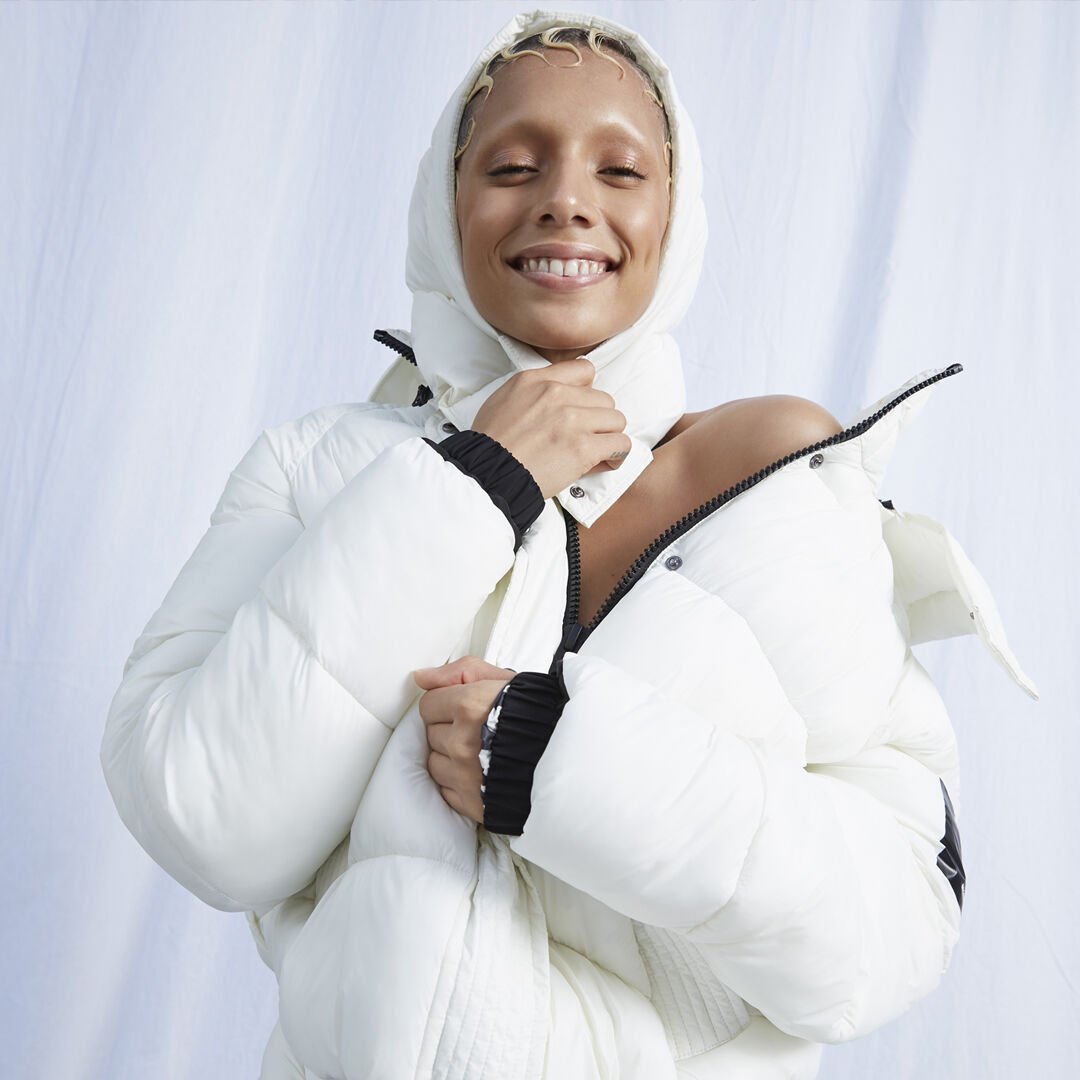

Made from waste: Desigual presents its new 100% sustainable collection made in collaboration with Ecoalf.
Made from waste and recycled raw materials to minimise consumption of natural resources.
07/01/2020
Thirty years ago, transforming used jeans into patchwork jackets led to our birth. Today, in collaboration with Spanish brand Ecoalf, we are recycling waste and transforming it into a wintery capsule collection. A story of true love that transforms waste into timeless designs.
Barcelona, 12 December 2019 — The first thing that caught our attention about Ecoalf was their commitment to the Mediterranean Sea through the Upcycling the Oceans foundation. When anyone talks about cleaning up the Mediterranean and believing in creation through transformation, we instantly fall for them. And so began the design process for a capsule collection created by Desigual and produced by Ecoalf. A capsule of garments made for this winter with the hope that – thanks to their timeless style, quality and colour palette – they’ll last a lifetime.
A collection that demonstrates our commitment to sustainability, a path we will continue to follow in our future collections. 11% of the spring-summer 2020 collection and 20% of the autumn-winter collection are sustainable.
The collection: reuse, reinterpret, rethink, relove.
A capsule made from 100% recycled garments meant to last a lifetime. Because recycling isn’t just about turning opportunities into design, it’s also about considering what is necessary, creating in a timeless manner and being true to yourself. That’s why we are presenting a collection which, with its colours, padded style and our new logo, wants to be the star of many winters to come.
Ecoalf: Because there’s no planet B.
Ecoalf, a pioneering brand in terms of sustainability and innovation, launched 10 years ago with the goal of manufacturing the first generation of fashion items made from recycled materials that would be able to match top non-recycled products in terms of quality, design and technical properties. They show that we don’t need to keep wasting the planet’s natural resources indiscriminately. From its inception, ECOALF has devoted – and still does – large amounts of resources to research, development and innovation. This investment is constant, and has allowed them to develop more than 300 different fabrics.
The materials the brand recycles include plastic bottles recovered from the sea floor, cotton, used tyres, abandoned fishing nets and wool. By recycling plastic bottles, Ecoalf makes water savings of 20%, power savings of 50%, reduces air pollution by 60%, saves 27% in terms of natural resources, and the list goes on. At Ecoalf, they try to meet the needs of today without sacrificing the needs of future generations.
“Reducing environmental impact is everyone’s responsibility. This is why alliances between fashion industry companies are essential to continued progress towards a model that facilitates sustainable fashion manufacturing. Joining forces with Desigual in this effort to pair their unique designs and creativity with sustainability and a commitment to the environment is both challenging and satisfying,” said Javier Goyeneche, president and founder of Ecoalf.
Our commitmment: sustainability.
Innovation and reusing have always been part of our identity. At Desigual, we create unique garments that inspire people and invite them to celebrate their authenticity at any moment and in any situation. We make clothes with the power to change people’s moods. Unique, colourful, optimistic and original garments. Our daily challenge is turning ideas into exciting collections. This is why we pay close attention to every single detail, from the materials we choose to the prints, colours and dressmaking techniques we employ.
We have always strived to offer the best quality to our customers. Now, to coincide with our change of image and the launch of SS20 as the first collection of this new era, we have worked even harder. 20% of our AW20 collection will be made up of sustainable references.
All political, economic, business and social entities are responsible for contributing to the reduction of the environmental impact that their activity generates. At Desigual, we are aware of this and we want to take on this challenge, as well as the challenge of responding to the social and environmental demands that an increasing number of people are integrating into their daily lives, consumption habits, leisure choices, etc.
This is why we are making strides in multiple directions. For example, the initiatives that we are putting in motion to increase the percentage of our fabrics that are manufactured in Europe; the gradual introduction of sustainable fibres into our collections; and the impending launch of our first sustainable collection with Miranda Makaroff, among other efforts.
Moreover, we have a Code of Conduct aimed at our suppliers that establishes the social, labour and environmental requirements that they must comply with; as well as the supply chain monitoring and auditing processes that ensure they comply with human rights regulations. We are increasing the number of natural fibres we use. In fact, they are now present in 40% of the collection, and we are following our own policy on materials. However, fabrics aren’t everything: sustainability is also about paying attention to the process and the impact that we generate through our operations, as well as reducing our carbon footprint.
This is Desigual, my friend.
We were born in 1984 through a (now iconic) jacket made from scraps of vintage jeans. This was one of the world’s first upcycled garments, which is why we carry a commitment to the planet in our genes: every day we strive to make our collections more sustainable and to improve our processes. We are a creative company that uses fashion so our customers can express their optimism and the best version of themselves. We are no less than 3700 people in 90 (very different) countries who – through 10 sales channels, more than 500 branded stores and six product categories: Woman, Man, Kids, Accessories, Shoes and Sport – dress millions of colour-seeking people around the world.
